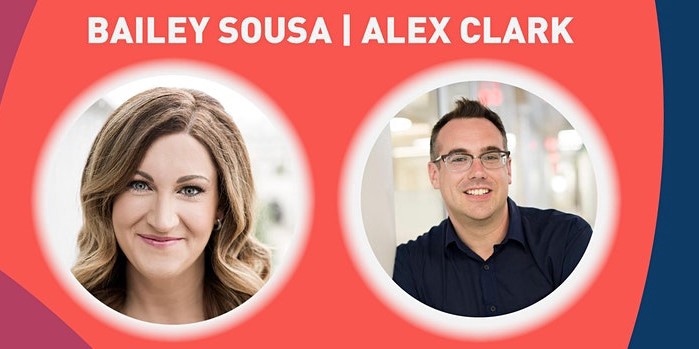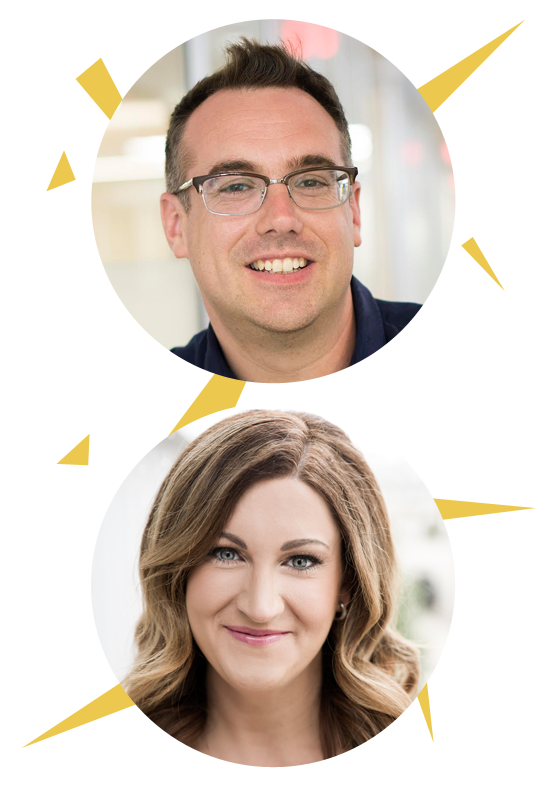
It's been quite the month - in quite the year. Between the ongoing losses and adjustments both in work and life due to COVID-19, the ongoing reorganization of both the academic and administrative sides of the University of Alberta, the state of the economy, and the recent Presidential election in the United States - our hearts, minds, and spirits have had lots to occupy them, more than usual.
Yet, even in calm seas, doing and supporting work in post-secondary education is some of the most taxing and complex work imaginable. This aligns with the research comparing academic work with other kinds of work, but also with the stories we hear at every turn. Stories of long hours, disengagement and futility, strained relationships, balance between work and home, and the prevailing sense that we each simply can never do enough with the time we have within unequal and unfair systems.
Over the last seven years we've been supporting academics, administrators, staff, and students worldwide to navigate challenge and change in their work - and ultimately find more success, happiness, and effectiveness in their roles. This work came from our passion to do full justice to both the diversity and the difficulty of work in academic settings, as extreme knowledge work, but harness the vast array of research and theory on working in challenging situations for those working in Universities.
Our workshops and consultation has taken us near and far - from a growing number of units and Faculties at the University of Alberta, across the UK, Ireland, the Middle East, and even to the Dept. of the Prime Minister and Cabinet in Australia. Yet, in our travels to many workplaces facing different perilously challenging situations, surprisingly consistent patterns emerge.
During hard times - disengagement features more than disharmony. Feelings are foggy more than crystal clear. Listlessness and disorientation mask deeper malaise, fear, and even bereavement. If only we can get through this, we reassure ourselves, everything's gonna be alright. For now, we are stuck in strange lands.
The most consistently helpful response we found to navigating difficult periods well with countless communities, was not what we first expected. Much of our work had dwelt on filtering out the noise of workplace distractions, focusing efforts on what mattered most - like self-care, and drawing good boundaries. All important stuff. But what emerged so clearly from challenged and challenging workplaces is that almost nothing matters without values. More specifically, your own personal values: who you are and what you stand for.
Disconcerted by the immense scale and speed of change somehow beguiles us into thinking that our values have less relevance or place. Even today, we ourselves find that it is so easy to become distracted. Bringing your own values back to your work is key not despite situations being challenging, but because situations are challenging. What matters most to you, matters most when things are tough.
As we face down winter, we're encouraging everyone on campus to prioritize reflection and action on their values. How can what I hold most preciously be expressed in what I prioritize during this period? What can I do today to better ensure that my values are brought to my contributions? How can the ability to stand tall in my values better prepare me for decision making and change? A values inventory is a useful tool that can help you find and name the values that matter most to you from literally hundreds of options.
Pinpointing your values in this way has innumerable benefits for everyone who works in a University. From informing choices about your work impact and what success looks like to you, to choices around supervision and teaching, to work relationships. What we have learned: it is when times are toughest that your values matter most. They should not be left at the virtual university office door. Know them, bring them, and live through them every day. Instead of being lost in strange lands, let's come back home to our values - and see where that takes us.

About Alex and Bailey
Founders of The Effective, Successful, Happy Academic, Alex Clark and Bailey Sousa share a passion for effectiveness and aspiration in academic work - and have supported thousands of academics and academic leaders on career strategy, values, working for impact, and project management. Clark & Sousa's work on academic skills has been featured worldwide in The Guardian, Times Higher Education, and many professional journals. Authors of the internationally-acclaimed book: "How to be a Happy Academic" (SAGE Publishing: London, 2018), they have led more than 150 interdisciplinary workshops. Well-known keynote speakers at conferences and a wide range of federal research agencies and universities worldwide.The Effective, Successful, Happy Academic, Alex Clark and Bailey Sousa share a passion for effectiveness and aspiration in academic work - and have supported thousands of academics and academic leaders on career strategy, values, working for impact, and project management. Clark & Sousa's work on academic skills has been featured worldwide in The Guardian, Times Higher Education, and many professional journals. Authors of the internationally-acclaimed book: "How to be a Happy Academic" (SAGE Publishing: London, 2018), they have led more than 150 interdisciplinary workshops. Well-known keynote speakers at conferences and a wide range of federal research agencies and universities worldwide.
Alex is a Full Professor and the Associate Vice President (Research) at the University of Alberta and is a World Economic Forum Young Global Leader / Young Scientist. Bailey is the Director of Operations at the Peter Lougheed Leadership College at the University of Alberta and a lifelong entrepreneur, she was recognized as Edmonton's Avenue Magazine's 'Top 40 Under 40' for her contribution in her work and to her city.